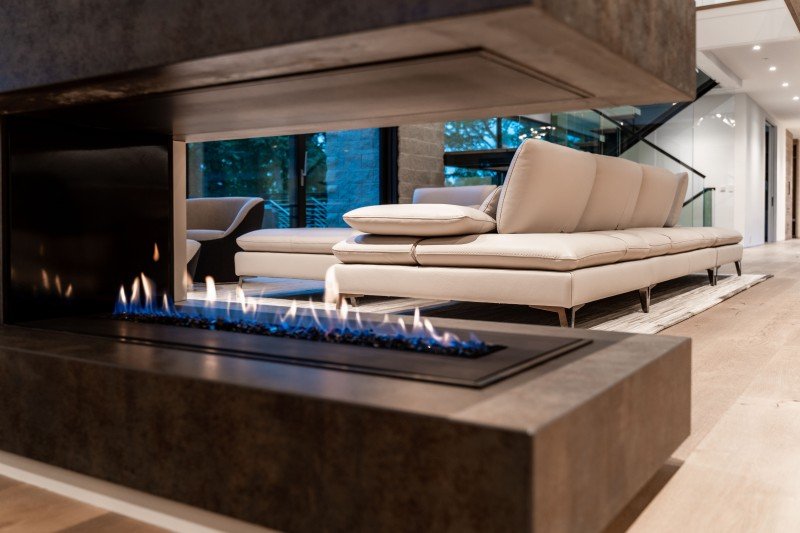Gas Fireplaces For Sale: A Comprehensive Guide
Gas fireplaces have ended up being increasingly popular due to their convenience, efficiency, and visual appeal. They offer homeowners a way to enjoy the ambiance of a fire without the inconvenience of traditional wood-burning options. Best Fireplaces will explore the different types of gas fireplaces, their advantages, and what to consider when purchasing one. Furthermore, it will supply a list of common concerns and responses to assist future buyers make informed choices.
Kinds Of Gas Fireplaces
When thinking about a gas fireplace, house owners need to understand the different types readily available. Gas fireplaces can normally be categorized into three primary types:
| Type | Description | Benefits |
|---|---|---|
| Ventless Gas Fireplaces | These units do not require a chimney or vent to tire combustion gases. They can be installed in any space, including bedrooms. | Easy installation and adaptability; they efficiently utilize gas. |
| Vented Gas Fireplaces | These fireplaces are connected to a vent or chimney to expel combustion gases outside. They imitate the visual of traditional fireplaces. | Safe and practical flames; can be utilized for heating bigger spaces. |
| Gas Inserts | Installed into an existing fireplace, these inserts provide an efficient option to wood-burning hearths. | Boosts efficiency while preserving the look of the existing fireplace. |
Benefits of Gas Fireplaces
Gas fireplaces boast a number of benefits over their traditional wood-burning counterparts:
- Convenience: With the push of a button, gas fireplaces fire up, eliminating the requirement for kindling or logs.
- Tidy Burning: Gas options produce fewer emissions compared to wood, causing a cleaner home environment.
- Adjustable Heat: Many gas fireplaces include adjustable settings to manage heat output, making them efficient for different space sizes.
- Lower Maintenance: They need less upkeep than wood-burning fireplaces, without any requirement to store wood or clear out ashes.
- Style Flexibility: Gas fireplaces been available in different styles, colors, and materials, enabling customization to fit any decor.
Factors to Consider When Buying a Gas Fireplace
Before buying a gas fireplace, a number of aspects should be taken into consideration:
- Type of Fireplace: Consider whether ventless, vented, or insert alternatives are most suitable for your home.
- Size and BTU Rating: The fireplace's size and heat output (determined in British Thermal Units, or BTUs) must match the measurements of the space to guarantee efficient heating.
- Fuel Type: Decide between gas and lp. Schedule and setup costs may vary depending on the fuel source.
- Setup Requirements: Consult with an expert to determine installation standards, consisting of venting requirements and building regulations.
- Visual Preferences: Look for surfaces, styles, and products that harmonize with your interior design style.
- Security Features: Ensure the fireplace has needed security functions, such as automated shut-off valves and oxygen exhaustion sensing units.
Popular Brands of Gas Fireplaces for Sale
When shopping for gas fireplaces, various brands use trusted and visually pleasing options. Here are a few of the most popular:
- Napoleon: Known for their classy styles and high efficiency.
- Regency: Offers a range of traditional and contemporary styles, with various modification choices.
- Heat & & Glo: Renowned for innovation and performance, providing both vented and ventless alternatives.
- Majestic: Specializes in wonderfully crafted gas fireplaces that integrate type and function.
- Vermont Castings: Offers top quality gas stoves with a traditional feel.
Rates for Gas Fireplaces
The price of gas fireplaces can vary significantly based on type, brand name, and features. Here's a general breakdown:
| Type | Price Range (GBP) |
|---|---|
| Ventless Gas Fireplaces | ₤ 800 - ₤ 3,000 |
| Vented Gas Fireplaces | ₤ 1,000 - ₤ 5,000 |
| Gas Inserts | ₤ 1,500 - ₤ 4,000 |
FAQs About Gas Fireplaces
Q: Are gas fireplaces safe?A: Yes,
gas fireplaces are safe when set up effectively and preserved routinely. Venting and security features help decrease risks.
Q: Can I install a gas fireplace myself?A: While some property owners might select DIY setup, professional installation is advised to guarantee safety and compliance with local codes. Q: How often need to I clean my gas fireplace?A: Gas fireplacesneed less maintenance than wood-burning models;
however, it's suggested to have them examined and cleaned yearly by a professional. Q: Do gas fireplaces need a chimney?A: Ventless gas fireplaces do not require a chimney
, while vented designs do. The type you select will determine the setup requirements. Q: Can a gas fireplace be used for heating?A: Yes, lots of gas fireplaces are efficient heat sources for rooms and can supplement home heater. Investing in a gas fireplace can enhance the comfort
and aesthetics of a home while offering numerous advantages. Understanding the kinds of fireplaces, evaluating individual needs, and considering factors such as fuel type and setup requirements will assist in making an informed choice. By considering reputable brands and understanding prices, consumers can discover the ideal gas fireplace to fit their home and way of life, bringing heat and appeal to their home.

